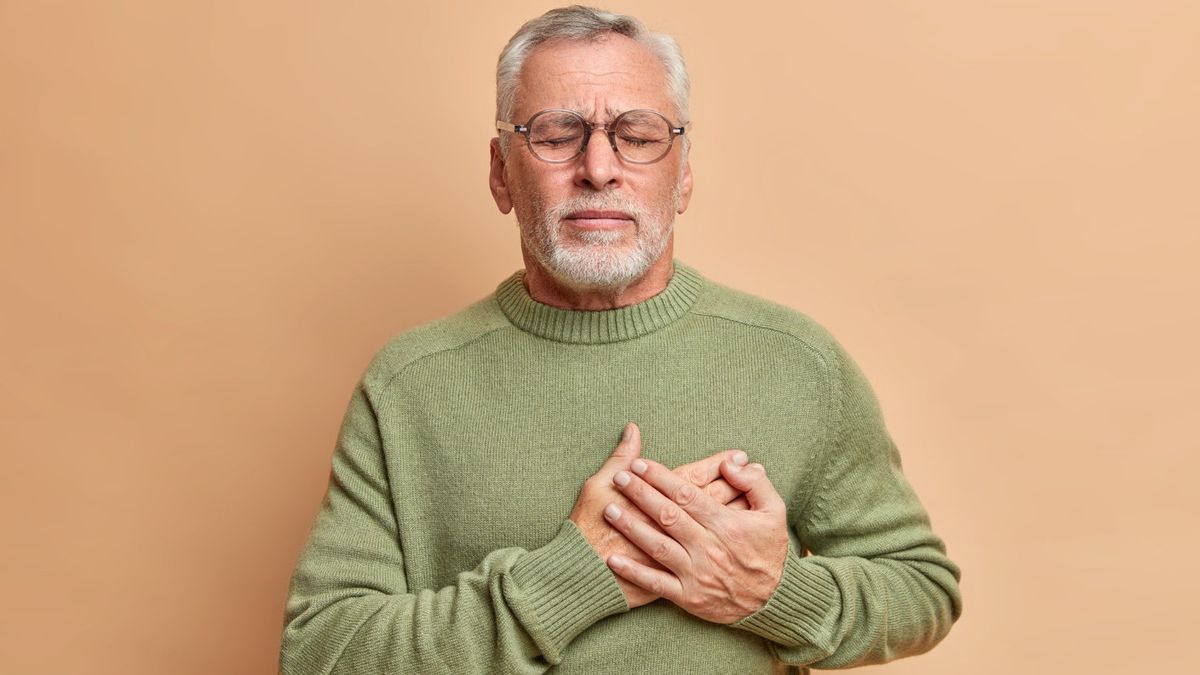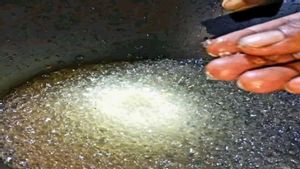JAKARTA – Many factors cause chest pain, from the simplest to those related to internal organs such as the heart and lungs. But there are a number of cases of chest pain associated with other health conditions, such as nerves, esophagus, and ribs.
Pain in the chest can be accompanied by a suffocating, burning, to very uncomfortable sensation. Generally, chest pain is related to heart problems. Reported by WebMD, Tuesday, December 14, the following is a list of causes of chest pain.
Heart problems 1. Coronary artery diseaseCoronary artery disease is experienced when there is a blockage in the blood vessels in the heart. Blockage causes reduced circulation of blood flow that carries oxygen to the heart. Pain due to coronary arteries is known as angina.
Although it feels uncomfortable, the symptoms of this disease usually do not cause permanent damage to the heart. But it increases the risk of having a heart attack.
2. Heart attack (myocardial infarction)Decreased blood flow through the blood vessels leading to the heart causes the death of heart muscle cells, which is the cause of heart attacks. The pain is similar to coronary artery disease, but is felt in the left and center of the chest followed by shortness of breath, nausea, severe weakness, and sweating.

Similar to the symptoms of a heart attack, myocarditis is accompanied by fever, fatigue, fast heartbeat, and shortness of breath.
4. PericarditisPain in the left and center of the chest, similar to angina, in pericarditis is caused by inflammation or infection of the sac around the heart. Not only felt pain in the chest, the pain was felt in the neck and shoulder muscles. Sometimes it's even more painful to swallow food, lie on your back, and breathe.
5. Hypertropic cardiomyopathyThis condition is a genetic condition that causes the heart muscle to grow abnormally thick. Sometimes it causes problems with the flow of blood out of the heart, causing the chest pain and shortness of breath that is often experienced during exercise.
6. Mitral valve prolapseMitral valve prolapse is a condition in which the heart valves fail to close properly, causing chest pain, palpitations, and dizziness.
7. Coronary artery dissectionSudden and severe chest pain followed by a tearing sensation may be due to coronary artery dissection. Many factors lead to coronary artery dissection. To determine each cause, consult a doctor when you feel unbearable pain in the chest.
Lung problems 1. PleurisyInflammation or inflammation is caused by irritation of the lining of the lungs. Symptoms are sharp pain when breathing, followed by coughing or sneezing.

Pneumonia, also known as lung abscess, is caused by an infection that triggers pleuritic and deep pain. Pneumonia is often experienced suddenly, and is followed by fever, chills, cough, and coughing up pus from the respiratory tract.
3. Pulmonary embolismPulmonary embolism occurs when a blood clot flows into the lungs. This condition can cause acute pleurisy, difficulty breathing, and a fast heart rate.
4. PneumothoraxInjury to the chest causes a portion of the lung to collapse and release air into the chest cavity. This condition is called a pneumothorax, which is unbearable pain followed by low blood pressure.
5. Pulmonary hypertensionIf angina occurs due to a heart condition, pulmonary hypertension actually has a similar taste to angina, but is caused by abnormally high blood pressure in the pulmonary arteries so that the right side of the heart is working too hard.
In addition to the five lung problems above, asthma and chronic obstructive pulmonary disease (COPD) include emphysema, chronic bronchitis, and chronic obstructive asthma.
Gastrointestinal problemsGastrointestinal problems also have the potential to cause chest pain, including GERD or acid reflux, impaired esophageal contraction, esophageal hypersensitivity, esophageal perforation, gastric ulcers, hiatal hernia, and pancreatitis.
Gallbladder problemsFatty foods are not only unhealthy but also trigger pain in the lower right chest area or right upper abdomen.
Bone, muscle and nerve problemsInjuries to the chest, especially the ribs, can cause chest pain. While muscle tension also causes pain that can be triggered by coughing hard, injuring the tendons between the ribs.
In addition, anxiety and panic attacks can also cause chest pain. Some of the symptoms that follow include feeling dizzy, feeling short of breath, heart palpitations, tingling sensations, and shaking.
Because there are many factors that cause chest pain, it is advisable to see a doctor to get an explanation and the right medical solution for what you are experiencing.
The English, Chinese, Japanese, Arabic, and French versions are automatically generated by the AI. So there may still be inaccuracies in translating, please always see Indonesian as our main language. (system supported by DigitalSiber.id)













